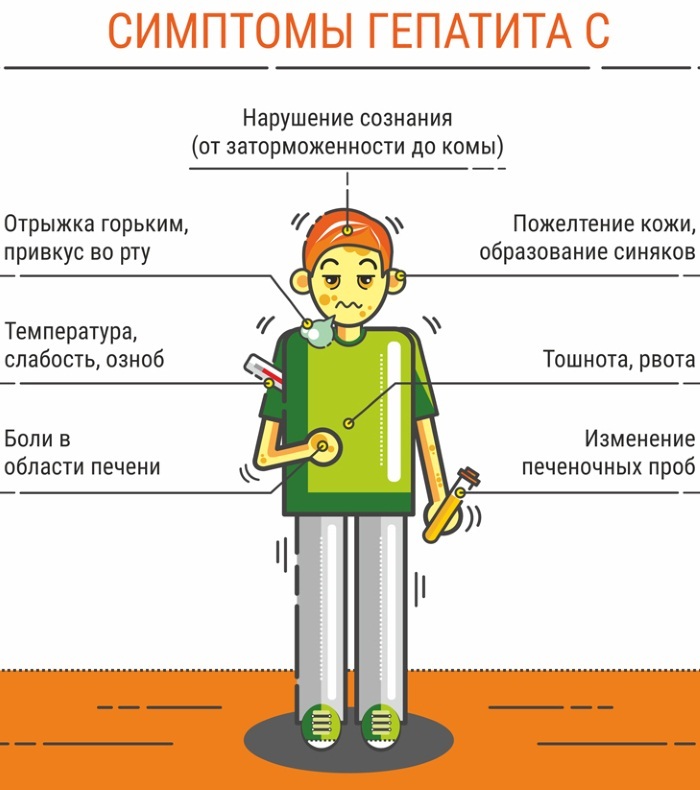Dizziness is a common symptom feeling unwell, which ranks second in frequency after headache. Regardless of the cause of the origin, the symptom manifests itself under the guise of a false sense of rotation, circular movement. In this case, there is general weakness, sometimes nausea and vomiting.
Record content:
- 1 Classification of the symptom of dizziness and weakness
- 2 Who is at risk?
-
3 Natural causes of feeling unwell
- 3.1 Period
- 3.2 Pregnancy
- 3.3 Climax
- 3.4 Weak vestibular apparatus
- 3.5 Excitement, stress
- 3.6 Lack of sleep
- 3.7 Mental and physical stress
-
4 Pathological causes
- 4.1 Anemia
- 4.2 Osteochondrosis
- 4.3 Diabetes
- 4.4 Hypothyroidism
- 4.5 Migraine
- 4.6 Cardiovascular disorders
- 4.7 Infections
- 4.8 Neurological diseases
- 4.9 Brain injuries and diseases
-
5 Why does a woman feel weak and dizzy?
- 5.1 Before and during menstruation, during ovulation
- 5.2 In the morning
- 5.3 After meal
- 5.4 After training
- 6 In what cases and how can a woman help herself?
- 7 When you urgently need to see a doctor, medical diagnostics
- 8 First aid for a sharp deterioration in health
-
9 Treatment
- 9.1 Drugs
- 9.2 Psychotherapy
- 9.3 Phytobalneotherapy
- 10 Folk remedies
- 11 Feeling bad video
Classification of the symptom of dizziness and weakness
Feeling unwell, dizziness, weakness is not a separate disease, such symptoms are typical for more than 80 diseases of varying severity. A similar condition can occur for a number of natural physiological reasons, or be a harbinger of serious complications and pathologies.
Clinical classification of vertigo:
| Systemic | Caused by damage to the vestibular apparatus | Rotational |
| Oscillatory | ||
| Lateropulsion | ||
| Feeling the elevator | ||
| Unsystematic | Occurs, as a rule, with central vestibular diseases | Fainting |
| Psychogenic dizziness | ||
| Mixed vertigo |
Some experts offer a classification of vertigo depending on the origin:
- vestibular genesis;
- intermediate genesis;
- central genesis.
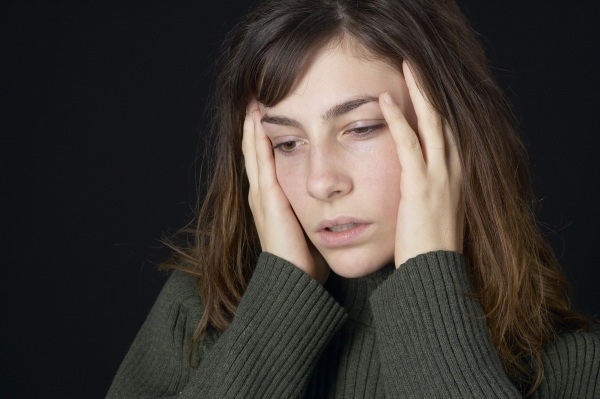
Analyzing all types of patient complaints, these symptoms are divided into:
- Systemic - dizziness that occurs when the function of the vestibular apparatus is impaired, accompanied by impaired autonomic functions.
- Non-systemic - dizziness that precedes fainting. They arise against the background of cardiovascular diseases, respiratory diseases, and other pathologies.
- Imbalance - manifests itself in violations of the function of walking of various origins.
- Psychophysiological dizziness arise against the background of anxiety and emotional anxiety.
The state of dizziness and weakness occurs, most often, suddenly, it can stop after a few minutes, and it can bother you for several days.
Who is at risk?
Up to 10% of patients complain to the doctor about occasional dizziness. This symptom can manifest itself in almost everyone, regardless of age and gender.
For natural physiological reasons, the following categories of people are more likely to be subject to dizziness:
- Elderly persons.
- Women during menopause.
- Women with menstrual abnormalities.
- Adolescents in the period of hormonal changes.
- People whose activities are associated with constant stress.
Natural causes of feeling unwell
Feeling unwell, dizziness, weakness are unpleasant sensations, but in some cases they are a natural reaction of the body to the processes taking place in it.
Period
About 80% of women experience pain, irritability, and constant weakness before the onset of menstruation. This condition has received a separate name - premenstrual syndrome (PMS).
Pregnancy
Unpleasant sensations in the form of attacks of weakness, dizziness and nausea accompany a woman in the first months of pregnancy, even in the most successful scenario. These phenomena usually stop on their own after the first trimester. Feeling unwell at the end of the term already refers to pathology and requires a more thorough examination.
Climax
Few women manage to go through the stage of serious hormonal shocks without worsening their general condition.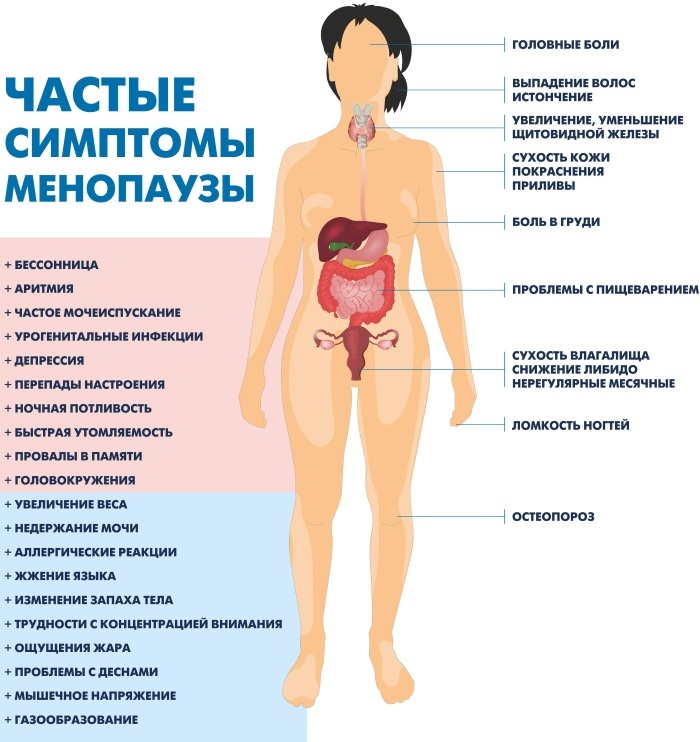
Common phenomena during this period:
- Dizziness caused by pressure surges.
- Irritability.
- Depressive states.
- Increased fatigue.
- Changes in the work of the main body systems.
With a favorable course of the process and the correct mode of life, women go through an unpleasant period without serious consequences.
Weak vestibular apparatus
The vestibular system, which is responsible for the regulation of movement and orientation in three-dimensional space, originates in the labyrinths of the inner ear. Its functions also include the stabilization of the head and the consistency of all human movements. Vestibular dysfunction can appear with a sharp change in body position or after riding attractions.
In this case, symptoms such as:
- nausea;
- increased sweating;
- imbalance;
- feeling of movement of support under the feet;
- lack of coordination;
- fogging;
- in some cases, speech difficulties may be observed.
Excitement, stress
Excessive psycho-emotional stress leads to a deterioration in the general condition. Fatigue, slight dizziness, tinnitus can be disturbing in the morning and evening.
Lack of sleep
The consequences of constant lack of sleep and rest are mainly medical in nature. Chronic sleep deprivation leads to a decrease in the hormones that produce insulin. In addition, it leads to the development of depression and a deterioration in the general condition.
Mental and physical stress
Severe fatigue in any kind of activity can not only suppress interest in work, but also lead to a deterioration in overall well-being.
Pathological causes
In addition to physiological reasons, the development of serious pathologies and diseases causes a deterioration in the state.
Anemia
Anemia, or anemia, is a clinical and hematological syndrome characterized by a low iron content in the body and a pathologically reduced hemoglobin concentration.
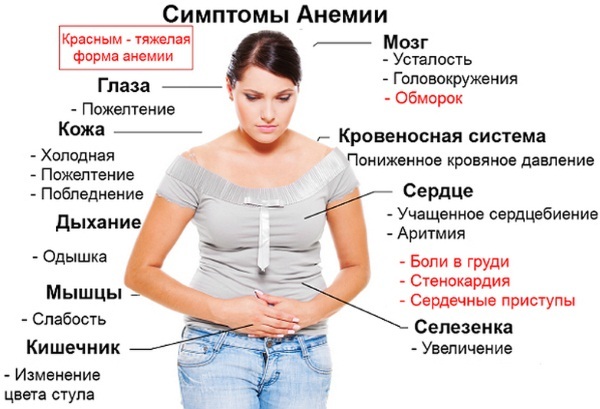
Anemia is not a separate disease; such a condition occurs as a concomitant pathology in a number of pathologies.
Osteochondrosis
In diseases of the musculoskeletal system, the blood vessels are clamped, which carry out the blood supply to the brain. As a result, dizziness appears, fainting, hearing and vision impairment are possible.
Diabetes
An endocrine disease that is caused by a malfunction in the interaction of insulin with cells or serious disorders in the work of the pancreas. Feeling unwell is caused by the constant disturbance of carbohydrate metabolism and high blood sugar.
Hypothyroidism
Disease of the thyroid gland, which leads to such troubles as:
- weakness;
- constant sleepiness;
- pathological changes in weight in one direction or the other;
- hair loss;
- neurological problems.
Migraine
This disease is not considered fatal, but those who are susceptible to its attacks periodically experience unpleasant phenomena throughout their lives. In most cases, women are susceptible to migraine attacks. 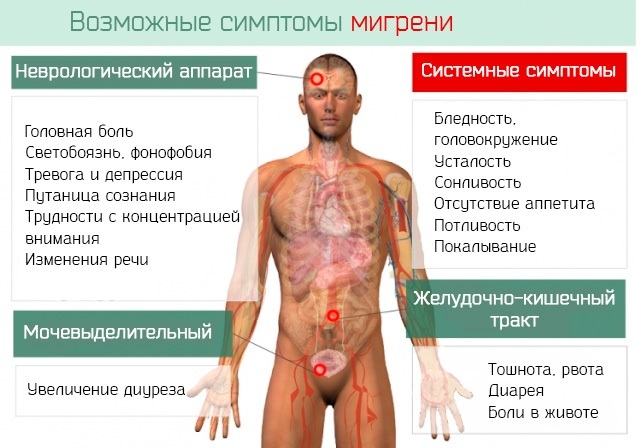 Feeling unwell with weakness and lethargy may last for several days after the attack.
Feeling unwell with weakness and lethargy may last for several days after the attack.
Cardiovascular disorders
Feeling unwell always accompanies heart disease and vascular pathology.
Dizziness and constant weakness are companions of such diseases as:
- stroke;
- thrombosis;
- ischemic disease;
- vegetative-vascular dystonia;
- heart failure.
Infections
Sudden weakness and feeling unwell can be a sign of an infection, which in some cases goes away in a mild form, without more serious symptoms.
Neurological diseases
With neuroses, in addition to frequent dizziness, sleep problems, tachycardia are observed. The patient may feel breathing problems, tachycardia.
Brain injuries and diseases
Concussions of varying severity can have negative consequences over a long period of time. Vascular spasms of the head, dizziness attacks, as well as frequent headaches, are in some cases the primary symptoms of tumor development.
Why does a woman feel weak and dizzy?
The fragile female body reacts very subtly to all changes within itself. Hypersensitivity is the main reason that women experience poor health and dizziness more often than men.
Before and during menstruation, during ovulation
The secrets of premenstrual syndrome and women's poor health on critical days were incomprehensible to doctors until the early twentieth century. Only with the development of science, scientists were able to find the causes of monthly female ailments. The main theory is abrupt changes in hormonal levels.
The stronger the hormonal imbalance, the worse the woman feels. Weakness and dizziness during this period are not pathologies, but nevertheless, their too vivid manifestations should be the reason for consulting a specialist.
In the morning
The dizziness that occurs immediately after getting up can make you feel unwell all day.
The reasons for this condition lie in the following:
- Narrowing of blood vessels, as a result of vegetative-vascular dystonia, increased meteosensitivity.
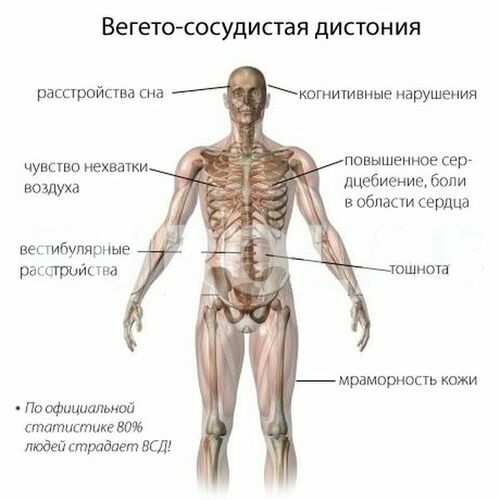
- A weakening of the body or an increase in blood sugar, which occurs as a result of excessive obsession with diets.
- Low blood pressure.
- Osteochondrosis of the cervical spine.
- Anemia.
- Inflammation of the middle ear.
After meal
If you start to feel dizzy immediately after eating, the development of pathology of the gastrointestinal tract is possible. Dumping syndrome, a pathological disorder in which food passes directly into the intestines, without being digested. The body reacts with a sharp release of hormones, a person feels all the signs of an increase in blood sugar.
After training
Intense physical activity in the gym often turns into dizziness and increased weakness.
The reasons for this condition lie in the following:
- A sharp drop in blood or intracranial pressure.
- The onset of a cold can sharply worsen after exercise.
- Early lack of sleep and chronic fatigue.
- Eating food just before class will make you feel nauseous. Unpleasant sensations also appear on an empty stomach, when the break after eating becomes more than 5 hours.
- Overheating, heatstroke, occupation in a stuffy, unventilated room.
- Lack of fluid.
- A sharp rise in blood sugar.
Usually, the bad condition returns to normal after you stop exercising and a little rest.
In what cases and how can a woman help herself?
The natural causes of attacks of weakness and dizziness, although they make you experience unpleasant moments, are not dangerous to health. In order to save herself from such cases as much as possible, a woman needs to listen to her body, draw up a correct schedule of work and rest.
Tips for maintaining your wellness are no secret:
- Keeping a monthly calendar helps you plan your activities so that on critical days you minimize stress and travel.
- The key to well-being is the right diet. Fascination with diets is just as harmful as overeating.

- Classes in the gym will pass without any trouble if you prepare for them correctly: ventilate the room, choose appropriate clothes. You need to eat 1.5 - 2 hours before class. At the first sign of discomfort, the exercise should be stopped.
- A cool shower and evening walks will help to invigorate and normalize the work of the cardiovascular system.
- Alcohol abuse and smoking are always irritants for the fragile female body and frequent causes of vasospasm, not to mention more serious consequences.
When you urgently need to see a doctor, medical diagnostics
Feeling unwell, dizziness, and weakness can be signs of serious health problems.
It is necessary to seek medical help in such cases:
- Attacks of feeling unwell became frequent, dizziness did not go away for more than an hour.
- Weakness and dizziness are accompanied by numbness in the limbs, difficulty speaking, and hearing loss.
- If you always feel dizzy when standing up, this could be a sign of heart problems.
- The weakness is accompanied by a severe headache.
- Constant dizziness on exertion.
The doctor will diagnose after a series of medical examinations and tests.
First aid for a sharp deterioration in health
Sudden weakness and dizziness usually occurs unexpectedly.
The rules of first aid to yourself or to a person nearby are as follows:
- The first action to be taken is to ensure the patient is in a supine position. Even if the attack happened on the street, you need to lie down on any bench or even on the lawn.
- At this point, the supply of fresh air is very important. If the victim is in the room, you need to open windows and doors.
- It is necessary to exclude irritants: loud sounds, too bright light. You should also turn off the working TV, computer, do not use the telephone.
- During this period, the body may experience a lack of fluid, so a glass of ordinary clean water will not be superfluous.
Regardless of the reason for the deterioration of health, the victim needs rest and rest. In difficult situations, an ambulance call is required.
Treatment
Since dizziness and weakness are not separate diseases, but always have some concomitant cause, it is not the symptom itself that is subject to treatment, but the main problem.
Drugs
Medicines to improve the general condition are prescribed by a doctor depending on the cause. Self-treatment, without medical advice, may be useless, or even harm the body.
Examples of medications that may be prescribed for dizziness include:
-
Preparations, which have vasodilating and antihistaminic properties: Cinnarizine, Betahistine.
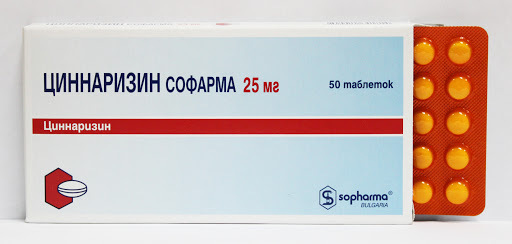
Cinnarizine tablets - Nootropics - neurometabolic stimulants that improve the functioning of the autonomic nervous system, have a positive effect on brain function. Such drugs are prescribed for people with serious neurological problems. Nootropics have a sedative and anticonvulsant effect. The main danger of drugs in this group is that they can be addictive. (Example of drugs: Phezam, Fenotrolil, Selank)
- Muscle relaxants (Baclofen, Midocalm, Traumeel and other drugs in this group) are prescribed in cases where dizziness is caused by muscle spasms and osteochondrosis.
- Women's ailments caused by menstrual irregularities or hormonal changes during menopause, are treated with hormonal drugs.
All medications are prescribed on the recommendation of a doctor, in appropriate doses and taking into account possible contraindications.
Psychotherapy
Violation of the general condition, dizziness caused by causes of a psychogenic nature, are always accompanied by increased anxiety, depression. An integrated approach to the treatment of such syndromes includes, in addition to drugs, psychotherapeutic techniques that are aimed at restoring the patient's emotional state.
When conducting psychotherapeutic sessions, parallel adherence to a special diet, daily regimen is indicative.
Phytobalneotherapy
This procedure is nothing more than a SPA - therapy using infusions and decoctions of medicinal herbs. Herbal baths relax and soothe, cleanse the body and soul.
Folk remedies
Traditional medicines based on herbs and other natural ingredients are successfully replacing pharmaceuticals, especially in cases of female malaise, neurological problems. Nature helps recover from strokes and injuries.
A few tips from folk healers.
With anemia:
- Boil a glass of oats in 3 glasses of water for 20 minutes. Consume 1 glass in the morning and in the evening.
- In the morning before breakfast, it is useful to eat 100 g of grated carrots with sour cream.

For dizziness caused by neurological reasons:
- Pour 20 g of hawthorn berries with 1 glass of boiling water, heat in a water bath for 10 minutes. Drink like tea twice a day.
- 2 tbsp Pour crushed dry birch leaves with 2 cups of boiling water. Warm up in a water bath for 15 minutes, cool, strain. Add baking soda to the tip of the knife. Take a decoction of 0.5 cups 3 times a day half an hour before meals for two weeks.
For women with climacteric neurosis:
- Mix bee pollen with honey in a 1: 1 ratio. Take 1 tsp. 3 times a day.
- Mix dry herbs of mint, fennel, linden flowers in equal proportions. 2 tbsp pour the mixture with 1 cup boiling water. Warm up in a water bath for 10 minutes. Insist for 1 hour. Take 1 glass in the morning and in the evening.
Feeling unwell is a common symptom of normal fatigue. Weakness goes away after rest, relaxing procedures. The main rule for the prevention of such conditions is a healthy diet, an even alternation of work and rest, and positive emotions. Dizziness, which becomes frequent, requires attention and mandatory examination.
Feeling bad video
Weakness and poor health are the first signs of VSD:

